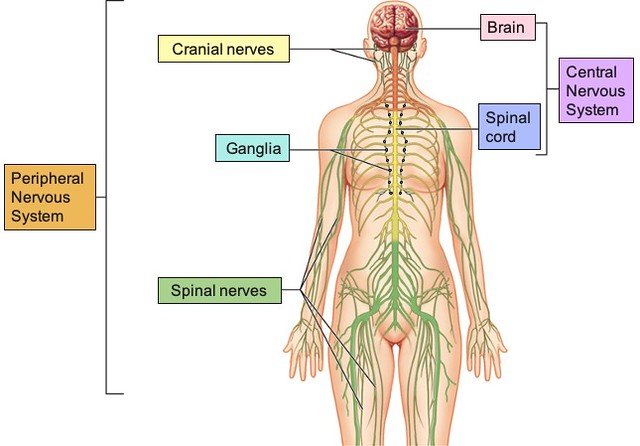Balancing Act: The Interplay Between the Nervous and Endocrine Systems
Do you know that our body have similar response for both anxiety and excitement? You will realize that for both experience, your heart races and breathing becomes fast, and so during those type of reactions, you might feel tense and this is body the body communicate with themselves.
Being a multicellular organism means that the cells have to work in synchronization or harmony so as to keep the organism alive. In other for our body to work in synchronization, the endocrine system and the nervous system ensure everything is in other.
When we discuss the nervous system we will mention the brain, the spinal cord, and the nerves in our body, and it has three main functions which include gathering information from within and outside of the body, processing the information and responding to the information. In the case of a unexpected event, the nervous system requires your sense of sight to get the information, send it to the brain through nerves connected to the eyes, and the brain processes the word, then the brain sends the information to the body causing the heart to beat faster similar to when you are performing an exercise.
The signals in the nervous system travel very fast between 0.5 to 120 meters per seconds. That's why your reflex is very fast when there is a flight or fight signal. The nervous system is mostly associated with short term responses in the body but not completely useful when it has to do with hormonal cycles regulation and not every cell and interact with the nervous system unless they have neurons attached to them.
Imagine stepping on a hard pointy surface, the first signal it sends it hurt which is instantaneous but the brain doesn't completely process this event for a very short period. The signals have to go through the sensory receptors along the neurons to the brain. When the message reaches the end of a neuron, it has to send the information from itself to another neuron and this is done through synapses which can serve as a time gap in this case. When the neurotransmitter gets to the brain, the brain understands it as pain and uses the information gotten for safety purposes.

https://pressbooks.ccconline.org
While the nervous system is fast to response, it doesn't always come in handy and this is where the Endocrine System plays a role as it plays to the long game. The endocrine system includes organs and glands in the body ranging from the Adrenal gland on the kidneys, to the hypothalamus in the brain, to the Gonads. While it is slow to respond compared to the nervous system, its effect last long enough and this is as a result of not relying on neurons primarily instead it sends messages using hormones. The body's endocrine system releases numerous hormones including peptide hormones, protein hormones, testosterone, and so on.
Not all cells can react to endocrine system just the same way not every cell can react to nervous system signals. Cells that react to hormones from endocrine glands are known as Target cells. The target cell doesn't have to be close to the origin of the hormone unlike nervous system with neurons but when they get the instruction, it last long even when it can take a while for it to react and send signals.

https://pressbooks.ccconline.org
Going back to the synchronization I talked about. The endocrine and the nervous system work together so as to be able to send fast and slow messages around the body when needed. Understanding how the nervous and endocrine systems function highlights the complexity of our body's internal communication. While the nervous system provides quick, short-term responses, the endocrine system manages slower, long-lasting effects. Together, these systems ensure our bodies can react to immediate challenges and maintain long-term stability. Whether we're feeling excited or anxious, our bodies are equipped to handle a wide range of situations, thanks to the intricate interplay between these two vital systems.
Reference
http://scienceline.ucsb.edu/getkey.php?key=5607
https://www.ncbi.nlm.nih.gov/pmc/articles/PMC3860493/
https://www.ncbi.nlm.nih.gov/pmc/articles/PMC6078535/
https://med.libretexts.org/Bookshelves/Anatomy_and_Physiology
https://www.ncbi.nlm.nih.gov/books/NBK10957/
https://pha.berkeley.edu/2018/12/01/getting-excited-over-anxiety/
https://opentextbc.ca/introductiontopsychology/chapter/3-4

Thanks for your contribution to the STEMsocial community. Feel free to join us on discord to get to know the rest of us!
Please consider delegating to the @stemsocial account (85% of the curation rewards are returned).
Thanks for including @stemsocial as a beneficiary, which gives you stronger support.